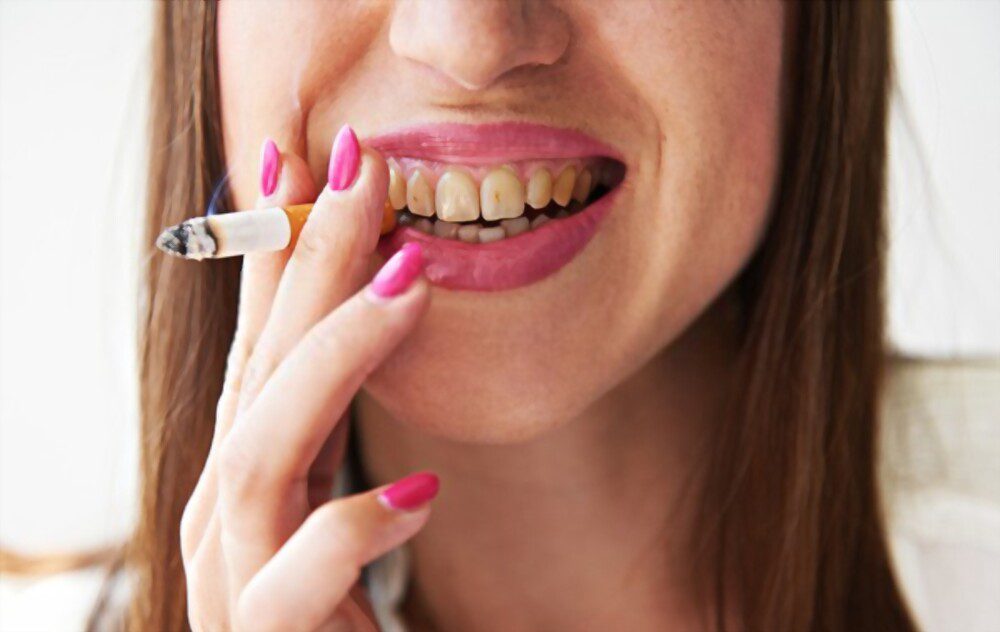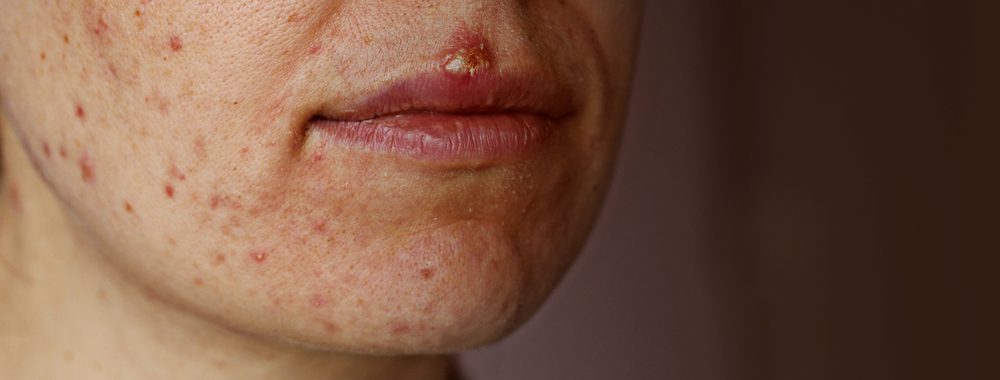Dirty Teeth
There are several reasons why your teeth could have become stained or dirty, it depends on your teeth-cleaning habits and your general health. Dirty teeth can appear sometimes after eating and drinking something containing dark colors. But this should not be a serious problem unless you allow the stains to build up on the enamel.
Moreover, bad habits, like heavy smoking and drinking, can affect the appearance of your teeth. It can turn them brown, grey, and even black if you don’t take action quickly enough.
Our overall health can also change the shade of our teeth. It disrupts the signals from the central system to the nerve endings in the pulp chamber. It replenishes the minerals and keeps the enamel looking bright and healthy.
Aging is a common cause of dirty teeth – although this can be more accurately described as ‘discoloration’. As the enamel loses its ability to fight stains as time passes, giving the teeth a duller appearance. The first step toward solving the problem of dirty teeth is to identify the main cause and work from there.
Make an appointment with the board-certified dental Clinic. Their friendly staff members are always available to discuss your options. They give you advice on how best to deal with a discolored teeth smile.


What are Causes?
There are several other factors that can be blamed for dirty teeth. It’s not always as easy as staying away from curry or cola, or avoiding that tenth cup of tea!
Restorative treatments
Metal fillings are common culprits for dirty or ugly teeth. They can sometimes cause dark stains to spread from underneath the amalgam and onto the surrounding enamel. This isn’t actually unhealthy or dangerous for the teeth, but it doesn’t look pleasant. These days, dentists prefer to fit fillings made from composite bonding material, to avoid this problem.
Medication
Some types of strong antibiotics can affect the shade of the teeth and turn them to brown or grey over the course of the treatment. Medication taken in childhood can even affect the adult teeth before they have started to develop.
Smoking
There is a long list of ailments attached to smoking. So it shouldn’t come as too much of a surprise that cigarettes are also terrible for your appearance. The chemicals and the nicotine stain the enamel yellow after a while, in the same way as they do the fingernails. Chewing tobacco is even worse, as it puts the brown substance in direct contact with the surface of the teeth.
Illness
Certain systemic disorders can distort the messages passed around the body and can cause tooth discoloration as a result. This is an intrinsic form of staining, as it stems from inside rather than outside elements.
Fluorosis
Fluoride is listed as being very healthy for the teeth and oral health. Brushing with fluoride toothpaste is generally considered to be a good thing. But, if you have too much of it in your diet as a whole, this can lead to chalky, white spots developing on the enamel. At first glance, this might seem like an extrinsic problem, but it actually comes from inside the body.
Root canal treatment
After a root canal filling has been performed, the tooth is essentially dead. As it has no inner workings to keep it sensitive to outside stimuli, and after a short time its condition will become apparent.
There’s not much that can be done to solve this problem. But a common part of the root canal process is to fit a crown over the top to protect the remaining tooth fragments. So it’s unlikely that the discoloration will be noticeable anyway.
Strong mouthwash
Unless your dentist prescribes you some antiseptic mouthwash post-surgery. You should choose a mild product that doesn’t contain alcohol. Otherwise, the strong ingredients will dehydrate the enamel and make it look dark and discolored.
Can having dirty teeth affect my health?
It’s true that dirty teeth can have a detrimental effect on self-confidence and dental health. But most people forget that there are also health implications to having dirty teeth.
Gum disease
By not cleaning properly, you are allowing bacteria to build up around your teeth. These bacteria are especially problematic in hard-to-reach areas. Gum disease might not sound like something to worry about.
Due to the painless symptoms that surface in the early stages of the disease. A lot of patients can be lulled into a false sense of security. But, without treatment, gum disease also known as Periodontitis can lead to more serious problems. It can also severely compound further dental treatment of any kind.
Once the bacteria has entered your system, it can cause the gums to pull away from the supporting bone. It can leave the roots of the teeth exposed to infection. It can cause them to fall out completely if the problem is not treated appropriately.
Tooth decay
Most of us are probably familiar with tooth decay in one respect or another. There are thousands of adults across the United States with fillings to prove it. But this kind of issue can be avoided by simply dealing with dirty teeth as soon as they become apparent.
Your teeth don’t have to be stained or discolored in an obvious way. For cavities to form in difficult-to-clean areas. Plague acid and bacterial waste become trapped against the enamel and start to eat the minerals in the teeth. As a result, this causes holes known as cavities or dental caries to form.
It leaves an open pathway for the bacteria to infect the delicate inner workings at the center of the teeth. Small cavities might not cause any real pain and can be dealt with quite effectively. But if the situation is deteriorate a life-threatening infection can set in. Then you might face more issues than just your teeth.
Abscesses
Pus-filled swellings are generally the result of bad dental hygiene. But can sometimes form after surgery or following an injury of some kind. Abscesses start to appear during the later stages of decay.
They can develop inside the infected cavity of the tooth, or along the gum line. As your body tries to prevent the bacteria from overpowering your circulatory system. Many adults with dental problems are unaware that abscesses are a sign of a deep-set infection that needs immediate treatment.
Large abscesses can cause blood poisoning, which can develop into septicemia quite quickly. Without the correct and immediate treatment, it poses a serious risk to your health. What happened if you are not brushing your teeth?
Treatment
If the problem seems to occur right after you eat or drink something, such as red wine. The best thing to do is brush your teeth as soon as you get an opportunity or at least rinse your mouth out with water. This gives your teeth a chance to repelling the stain before it becomes embedded into the enamel.
Moreover, you should try and reduce your intake of substances that can damage your teeth. Particularly if you have this problem regularly because you might end up with long-term issues. It needs dealing with if you just continue with your bad habits.
Deep layers of staining that have built up over many years are not going to be as easy to get rid of. So if any amount of brushing and teeth cleaning doesn’t work, you should get a teeth whitening treatment. The procedure uses a tiny amount of bleach to attack the dark molecules and return your teeth to a white finish. It can give great results in under an hour, in most cases.
Whether your dirty teeth are the result of years of neglect, ill health, or simply the process of aging. You could benefit from having them bleached. You might be surprised what a difference it can make to your self-confidence and the way other people view you. A natural, polished teeth smile advertises a healthy, youthful person.


How can I avoid getting dirty teeth?
It might seem like our teeth are indestructible, but that doesn’t mean you can neglect them. You cannot expect their recovery from anything you throw at them. Avoid eating and drinking too much of things that will stain your teeth, such as:
- red wine
- curry
- cola
- coffee
- smoke cigarettes
- chewing tobacco
- cigars
These are all terrible for your health in general, but they are very bad for your teeth. Regular teeth cleaning is a must if you want to keep your teeth smile a healthy white. Remember to brush and floss every day and maintain contact with your dentist. This will help to treat any problems before they can cause even minor damage.
You should also replace your toothbrush every few months. An old, soft brush is not going to be adequate for keeping your teeth in the best condition.







